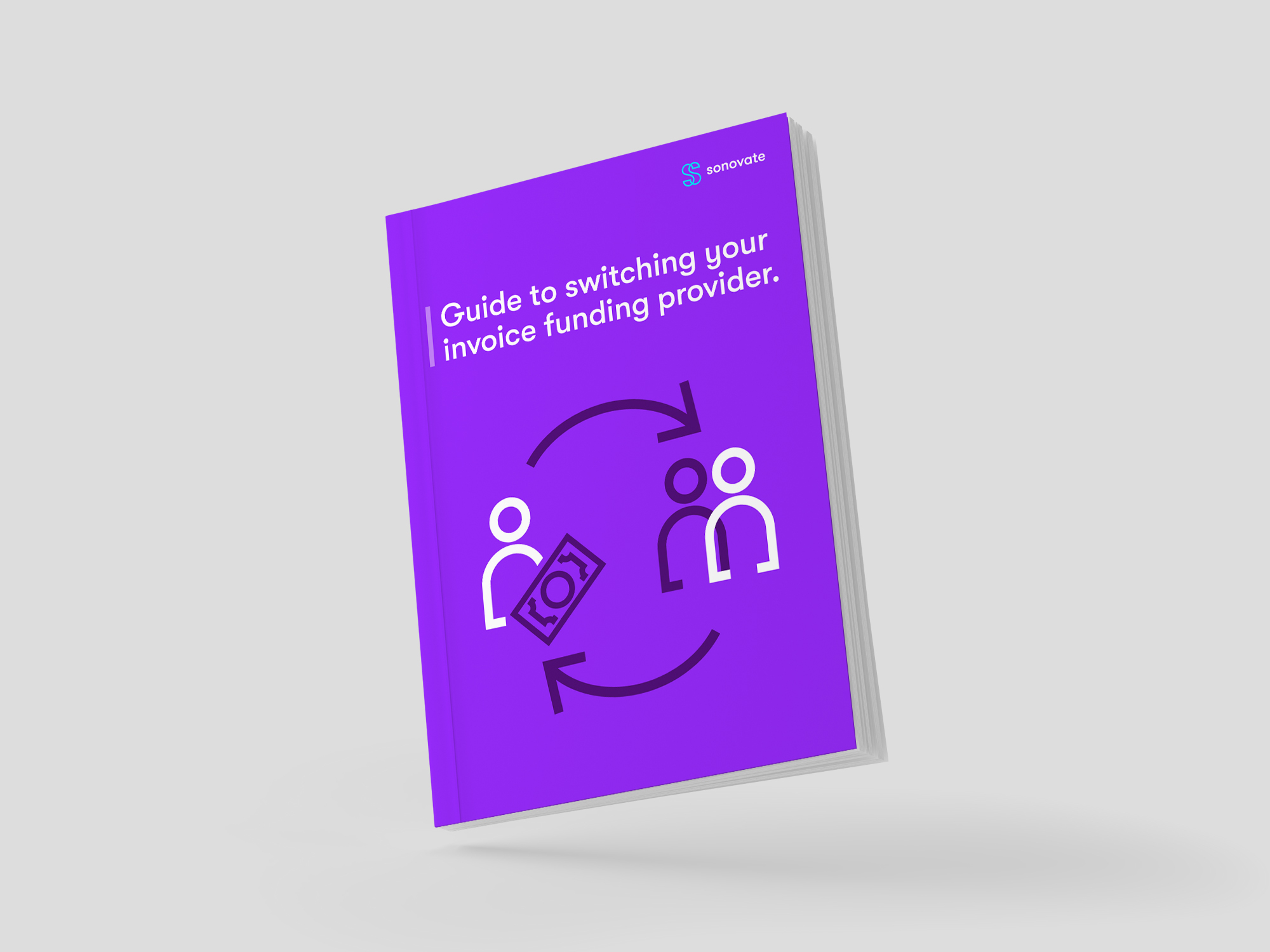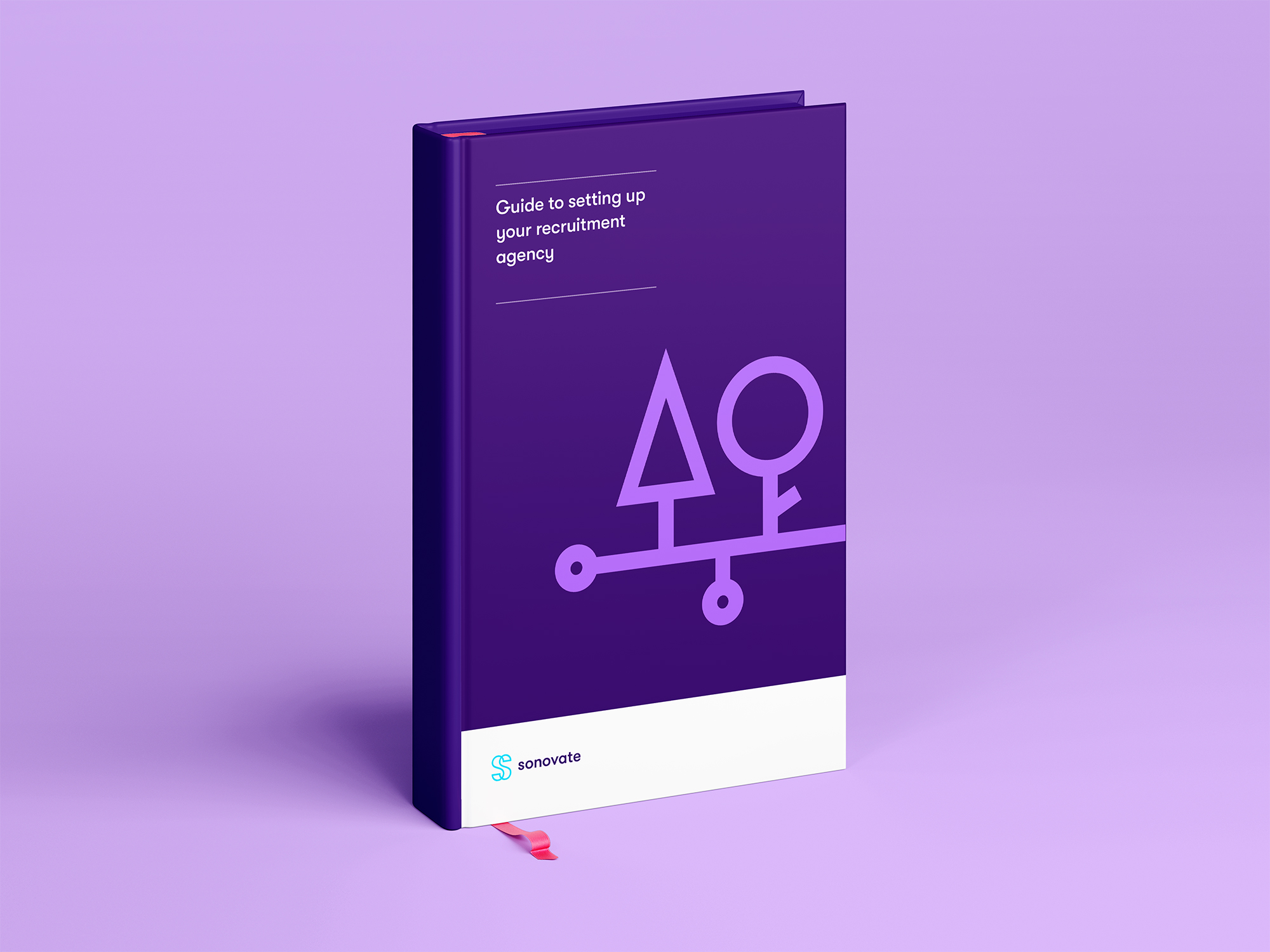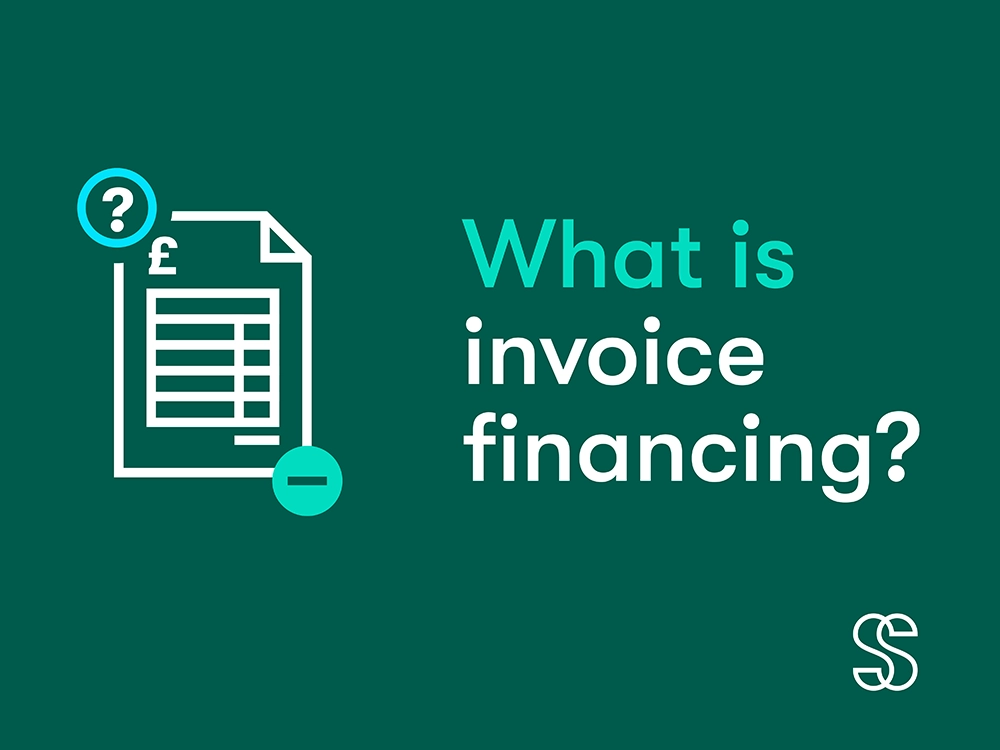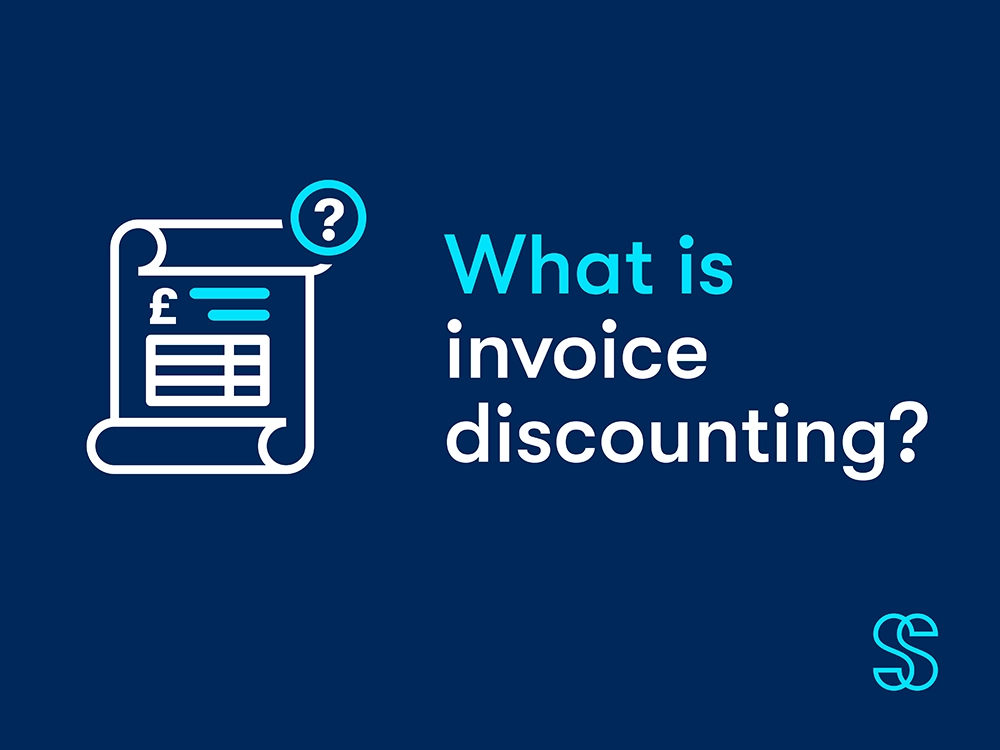What is invoice factoring?
Updated: July 2023
Almost every small business owner knows what it’s like to stress over the financial stability of their own company. A lack of available cash can hold back organisations from paying vendors punctually or taking opportunities that could propel their business to the next level.
Invoice factoring offers businesses a financial solution that alleviates cash flow concerns, without the burden of pricey interest rates. With immediate access to capital, companies can cover critical business expenses and make valuable investments that facilitate long-term growth.
Discover what invoice factoring is, how it works and find out just how much it can benefit your business.
Table of contents:
Introduction Invoice Factoring Explained Why Businesses Use Invoice Factoring Advantages of Invoice Factoring Considerations for Invoice Factoring What Businesses Should Use Invoice Finance? Recourse and Non-recourse Factoring Apply for Invoice Factoring: Work With Sonovate Success storiesInvoice Factoring Explained
Invoice factoring, also known as accounts receivable factoring or debt factoring, is a form of invoice finance developed for companies that invoice their customers with a time-based payment term.
Receivable factoring involves selling your outstanding invoices to a factoring facility, in which they pay you a percentage of the overall cost. This service allows you to gain an instant influx of cash instead of waiting 30 to 90 days to get paid.
What is an Invoice Factoring Company?
An invoice factoring company is the business that buys your unpaid invoices in return for a service charge. Factoring organisations typically operate under specified recourse arrangements, meaning you’ll keep the responsibility for any invoices that haven’t received payment. But, some factoring providers offer the option to credit insure selected customers to minimise exposure to bad debt. At Sonovate, we offer 95% bad debt protection as standard.
How Does Invoice Factoring Work?
The process for invoice factoring is as easy as four simple steps. Let’s break down how this financial solution works:
- Create invoice: Your business delivers its products or services to a client, which generates an active invoice.
- Sell invoice: Your company then sells the payment agreement to its trusted factoring company.
- Get part-paid: The factoring company assesses the risk of non-payment from customers and pays your organisation an agreed percentage of the invoice cost. This portion is called the advance rate and commonly accounts for 80% of the overall value. At Sonovate, we offer up to 100% of the overall valueSome providers such as Sonovate advance up to 100% of the value of such invoices.
- Receive full payment: The debt factoring facility assumes responsibility for payment collection on the invoice. In some cases, when the factoring business receives the customer’s complete amount, they’ll pay you the remaining balance; also known as the reserve.
What’s the Difference Between Invoice Factoring and Invoice Financing?
Invoice financing and invoice factoring are separate types of asset-based financing covered by the umbrella term ‘invoice finance’. There are more similarities between financing and factoring than differences, as the two finance options give you the opportunity to receive cash for your outstanding invoices. Similarly, both rely on third-party services to provide for your accounts receivable.
The difference comes down to the collection of unpaid agreements. With invoice financing services, you are required to chase up your own customers for payment, whereas, invoice factoring involves selling your invoices to a financing company, letting them take control over payment collections. Learn more about which option is best suited for your business with our helpful guide.
Invoice Factoring Example
Let’s say John Smith’s organisation is experiencing issues with cash flow stability and turns to a factoring facility to solve this problem. John has agreed on an advance percentage of 80% with the factoring business and sells an invoice worth £10,000. In return, the company advances John £8,000.
If customers reach late payment status, the invoice providers would chase this up on John’s behalf as part of the agreement.
Once the invoice is paid in full, the money is sent directly to the debt factoring facility and John receives the remaining 20% invoice value minus the service charge. From the £10,000, John would typically pay £400 for the ability to get instant access to the cash he’s owed.
Why Businesses Use Invoice Factoring
Waiting for customers to pay invoices often takes a significantly long time in the grand scheme of business. Payments can take several weeks, even months, to come in, which can cause serious cash flow issues.
In these slow periods, companies often fill the gap in cash flow with interest-heavy overdrafts or business loans. Even with these fixes, they can lead to further financial strain down the line. Overdrafts can generate hefty debt, which is difficult to pay off, and a secure business loan can take up to three months to receive. That’s where invoice factoring addresses these concerns and offers an alternative solution.
Invoice factoring is quicker and easier than other financial support services. Factoring facilities give you instant cash for your unpaid invoices and eliminate the burden of interest rates and lengthy authorisation processes. By obtaining the capital you’re owed when you need it, you’ll be able to:
- Bridge short-term expenses.
- Repay your loans.
- Invest in seasonal business opportunities.
- Contribute to budgets for long-term growth.
Advantages of Invoice Factoring
On top of the many perks already mentioned, here are some of the other key benefits that debt factoring has to offer:
Improved Cash Flow
One of the most favourable reasons why businesses use an invoice factoring service is to enhance their cash flow. Organisations that offer long invoice payment terms are prone to issues with cash flow, as they allow large time gaps in receiving capital. Invoice factoring gives these companies immediate access to cash, which lets them cover operational costs without having to wait for customers’ money to come in.
Better Working Capital
Receivable factoring can help stabilise issues with your working capital during quiet periods. With the ability to select which invoices to sell, you can level out the drop in income and obtain the necessary cash when sales are slow. Easy access to money boosts the accuracy of business planning and forecasting, which lets you take opportunities that were otherwise unapproachable.
Supports Business Growth
Strong and steady cash flow facilitates success for your business. A stable influx of cash can provide the finances necessary to support technological investments and expansion budgets. Similarly, if a company experiences a sudden boom in active clientele, it’ll likely require immediate funds to meet increasing demand. Invoice factoring delivers the necessary capital with limited waiting time, enabling organisations to further leverage their existing sales without the risk of debt.
Saves Time to Focus on Running Business
Factoring companies typically assume the responsibility of collecting invoice payments to reduce your business overheads. By removing the hassle of debt management and customer administration, you can boost the morale of your accounts department, as payment chasing is usually a tedious and tiring task. With invoice factoring, your business can spend less time on collections and focus its efforts on enhancing operations for steady growth.
Bad Debt Protection
Bad debt protection is an additional service that can be an extension of your invoice factoring agreement. It ensures you still receive payment even if your customer doesn’t settle their invoice. If customer non-payments do arise, your debt factoring company will contact an insolvency practitioner on your behalf.
Considerations for Invoice Factoring
Risk is an essential element to consider for any form of business finance. To keep you informed before settling into an agreement, we’ve listed the main stakes associated with invoice factoring:
Reputation
When you sell invoices to a factoring company, they adopt the responsibility of collecting the payments. In turn, you pass some control over your customer relationships too. If your factoring facility chases up invoices in an aggressive manner, this will affect your quality of service and potentially dissuade customers from working with your business again in the future. Also, some clients may view third-party involvement as a sign your organisation isn’t as stable as it seems.
Costly Approach
In some cases, factoring costs can be higher than bank loans, but it’s important to note that bank loans gather debt which can build up over time. To mitigate the risk of large expenses, you can consider other financing solutions that enhance your flexibility. Selective invoice factoring (also known as selective invoice discounting, spot factoring or single invoice financing) allows you to carefully pick which invoices you factor by selling individually appointed payment agreements. The ability to choose the invoices you sell lets you make informed decisions that best suit your business finances.
Trust in Third-Party Services
Giving a third party the right to handle your accounts receivable means you’ll inevitably have to sacrifice an element of control. However, you can also view this as taking a burden off your shoulders. Since lenders assume customer service responsibilities, what’s really important is ensuring your factoring company is established, trustworthy and provides quality services. Here are some attributes to look for when comparing debt factoring facilities:
Service: Check if they’re a member of UK Finance, examine customer testimonials and read external reviews to see what other businesses genuinely think.
Price: Refrain from focusing on classic headline rates. Instead, look for a vendor who provides transparent pricing, or carefully examine the prices and fees of all services as these hidden charges can elevate the overall cost.
Flexibility: It’s good to see whether there’s a named representative who can provide flexibility when your business needs it. Also, try to make sure they have a simple cancellation method and don’t tie you into long-term contracts.
What Businesses Should Use Invoice Finance?
Invoice finance solutions are as beneficial for small-to-medium-sized businesses (SMBs) and startups as they are for larger corporations. In fact, they might even be more ideal as sufficient funding can give smaller companies the capital required to grow and expand. This applies to recruitment businesses who place contractors or permanent workers.
Invoice financing can also support organisations with limited resources, slow-paying customers or a poor credit score to acquire cash more effectively. It’s important to note that prices may be slightly higher as a result of increased risk.
Invoice Factoring Prices
There are varying factors that cause invoice financing costs to differ, such as:
- Invoice value.
- Customer’s business size.
- Allocated time frames.
- Potential risks.
- Customer or end-client’s credit score.
- Customer’s reputation.
All invoice factoring expenses are broken down into two regulatory charges: discount fee and service fee.
Discount Fee
Also known as discount rate or factoring fee, the discount fee is calculated as a percentage of your company’s monthly use. Depending on the complexity, risk and credit rating of your customer, discount rates can cost up to 5% of the overall invoice.
Service Fee
In return for their services, factoring companies ask for a small percentage of the invoice total, which is generally 1-2%.
Unique circumstances may lead to additional charges, for example, credit protection or action to end the service or contract prematurely.
Recourse and Non-recourse Factoring
The difference between recourse and non-recourse factoring mainly lies in the liability of debt created by invoices late or non-payment. Recourse factoring is the standard option, in which your customer remains your responsibility after selling your invoice.
Non-recourse factoring, on the other hand, is a separate factoring product known as ‘bad debt protection’. Bad debt protection safeguards your business from the consequences of non-payment. However, it’s important to note that selling invoices from this customer in the future will lead to higher costs due to the increased risk that the factoring company assumes.
Apply for Invoice Factoring: Work With Sonovate
Avoid the undesirable surprise of hidden fees. Sonovate supports thousands of businesses across the UK, especially in the recruitment sector. Unlike banks and traditional lenders, we’re straightforward, transparent and reliable partners to work with.
- Simple setup process.
- No lengthy contract commitments.
- Transparent fees. No hidden charges.
- No imposed credit limits.
- Inclusive bad debt protection.
Our duty of care means we’ll treat your customers exactly how you would expect us to. Just take a look at the businesses we’ve helped over the years.
Sonovate is unlike other factoring facilities. Instead of a percentage, you receive up to 100% of your invoice value almost instantly, whilst we handle the hassle of chasing your payments. Our all-encompassing finance platform makes managing and funding simple.








